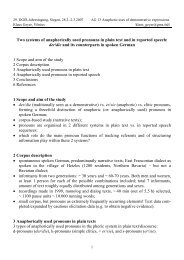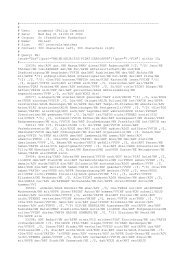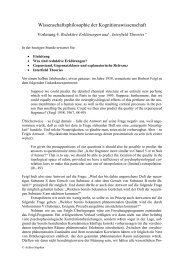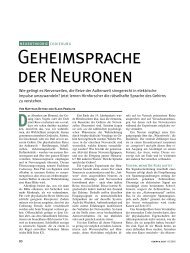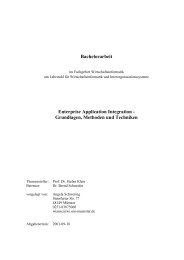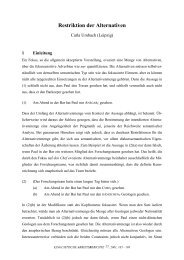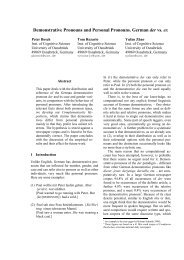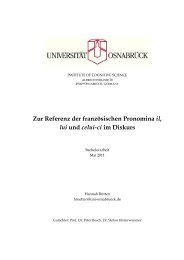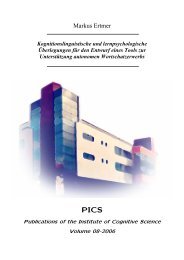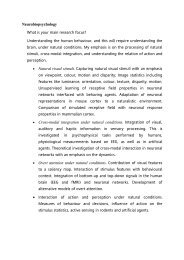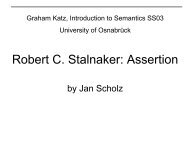Bound and referential pronouns - Cognitive Science
Bound and referential pronouns - Cognitive Science
Bound and referential pronouns - Cognitive Science
You also want an ePaper? Increase the reach of your titles
YUMPU automatically turns print PDFs into web optimized ePapers that Google loves.
Interpreting <strong>pronouns</strong><br />
When the interpretation of a pronoun depends on another DP<br />
this may be due to<br />
i. the pronoun being c-comm<strong>and</strong>ed <strong>and</strong> syntactically bound<br />
by that DP.<br />
We speak here of bound <strong>pronouns</strong> (in a narrow sense of<br />
"bound").<br />
This relation is obviously only possible within a sentence<br />
<strong>and</strong> is not based on a relation of reference.<br />
(1) John thought he would be late.<br />
(2) Everyone thought he would be late.<br />
(3) Fred told Jane she would be late.<br />
Interpreting <strong>pronouns</strong><br />
When the interpretation of a pronoun depends on another DP,<br />
this may, alternatively, be due to<br />
ii. the pronoun occurring <strong>referential</strong>ly,<br />
a. referring to the same entity that is referred to by<br />
another <strong>referential</strong> DP in discourse (strict<br />
coreference)<br />
(4) John took the train. He went to Berlin.<br />
b. or referring to an entity that was introduced into the<br />
discourse indirectly by another, not necessarily<br />
<strong>referential</strong>, DP (discourse reference)<br />
(5) A man called. But he didn't leave a message.<br />
(6) John wanted to catch a fish. He wanted to eat it<br />
for dinner.



